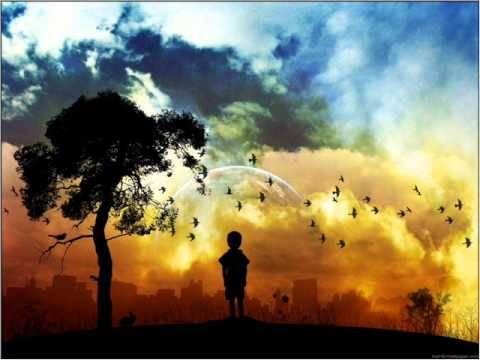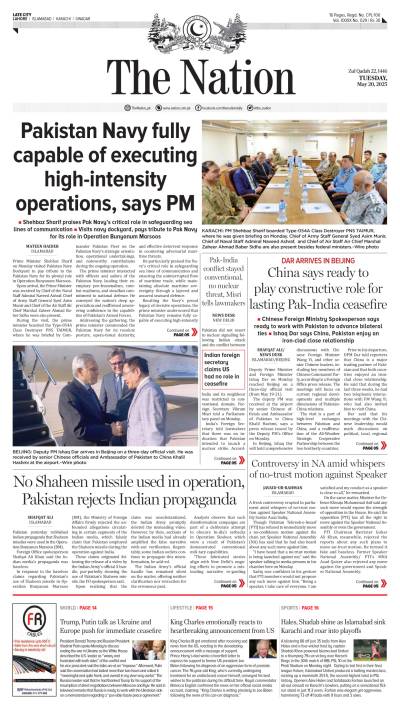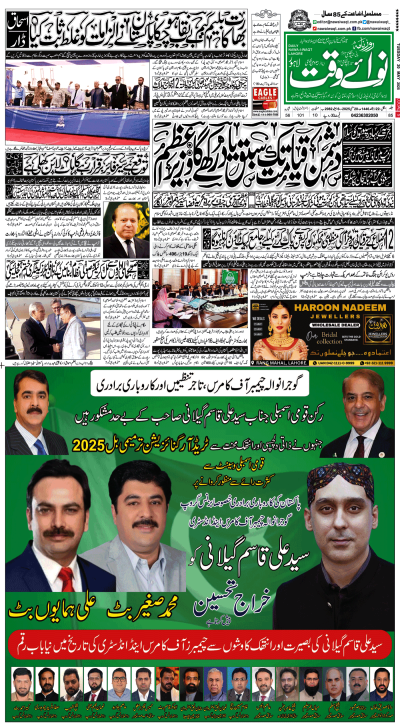The household I grew up in did not give space to questioning or reasoning. The notion of 'al-fikr kufr' (the very act of thinking makes one become an infidel) was practiced zealously by the usual sentinels of tradition and dogma - the older generation demanding robotic respect and piety. It took me years to find out that the 'dysfunction' prevalent in my family and extended family was part of a culture and a larger global community.
Of course, we all go through the pains of doubt, skepticism, the torturous lack of faith, the disbelief, the estrangement and the final decision. The decision is almost always to make one's life easier or to maintain the status quo, or simply to sling back into blissful oblivion; a part of a clone mentality where everyone acts, talks or believes the same thing. I am not going to go into the pontifical stance of "it takes courage to stick one's neck out". It doesn't. The need to say things which are contrary comes out of this restlessness, this constant desperation of seeing the truth being buried through deception, lies and slander; this constant agony of having been silenced, your views and opinions termed dangerous and 'corrupting' especially in one's circle of influence.
There are fears, there is terror, there is this nagging in the soul, the constant prickly sensation on one's spine, and it goes on for years. It’s not an easy life to live. You become estranged from people, you turn recluse, you get paranoid and there is utter hopelessness many a times.
But then you start introspecting on what the kind of life you want to live; the willingness to speak the truth to power within one's own community for the sake of a greater good. This willingness brings with it integrity – a wholeness of reconciliation with one's past, present and future. I did not have a term for it, but I learnt it’s called 'moral courage'. And belonging to the region I come from, it’s the only way to resolve an identity crisis.
Kashmir has many truths coming out now. There is an azaadi truth, the occupation truth, the oppression truth, the majoritarian truth, the minority truth, the habitual truth, the documented truth, the media truth, the memory truth and so on and so forth. Depending on which side you are on, which narrative fits your experience, your views, your opinions, the narrative is spruced up and embellished and served. It can be very difficult to sift through and see what is right and what is wrong, which is truth and which one is merely an illusion. That is when one starts relying on one's own reasoning and a fair sense of justice.
'Eudaimonia', a Greek word, often translated as well-being or happiness, is the highest aim of all human practical thinking, according to Aristotle in his Nicomachean Ethics. He further discusses that happiness is properly understood as an on-going and stable dynamic, a way of being in action (energeia), specifically appropriate to the human 'soul' (psyche), at its most 'excellent' or 'virtuous'. To sum up - If there are several virtues then the best and most complete or perfect of them will be the happiest one.
The Philosopher as Aristotle was known in the Orient, was copiously studied by The Commentator, Averroes (Ibn Rushd- I use the name the West gave him since his own community rejected him) and built upon to formulate and expand upon his core belief of 'primacy of reason'. I won't get into the historical speculation of if his Mutazilite leanings had won over the Asharite strain of al-Ghazzali, the world would have been a very different place today. That is another story for another day.
Why is it important to show moral courage and speak no matter what? Risking the disapproval of family, friends, colleagues, why does it become necessary to voice one's doubts? Because as Irshad Manji writes in her book ‘Allah, Liberty and Love’: Some things are more important than fear.
Some things require questioning like incest in a society which doesn't even acknowledge it; like ethnic cleansing of a community from their ancestral land of centuries with their traditions and old way of life threatened; like the constant humiliation and quiet abuse of women in their homes in a shame-based culture that makes it taboo for the victims to complain or raise a voice; like the stigma attached to mental illness and misplaced acts of piety diverted towards dogmatic traditions instead of where they are actually required; like questioning the narratives that constantly make up an external enemy responsible for the struggles of our society, instead of introspecting and trying to question whether we ourselves are responsible.
The primacy of tradition (naql) has to be overturned to that of primacy of reason (aql). In a culture that teaches us to revere parents nothing less than demi-gods, it becomes all the more necessary to be critical of parents and their opinions. That is how one develops a conscience of one's own accord. And that is moral compass enough to live a life of dissent.
For then the narratives don't only become regurgitating of facts or truths and burdens of the past to be pushed onto future generations; they become narratives of hope and progress and testimonials to the resilience of the human spirit.






